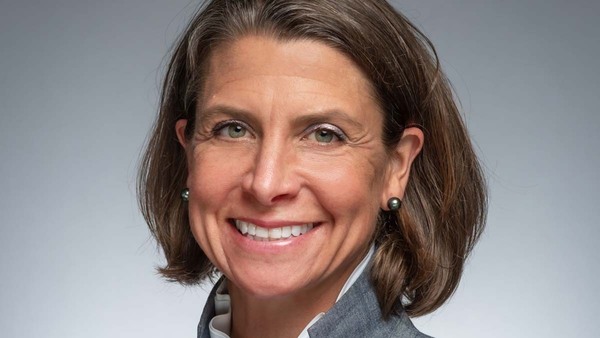
Highlighting the different and often-competing stories scholars and firms articulate about online privacy, Kirsten Martin, director of the Notre Dame Technology Ethics Center (ND TEC), delivered the Privacy@Michigan 2023 keynote address at the University of Michigan on Friday, Feb. 17.
In her talk, titled “Privacy, Power, & Platforms: How to think about user privacy expectations online,” Martin argued that people always have expectations for how their data will be used when they share it with an online platform like Google, Amazon, or Facebook, and that whether or not those expectations are met is defined by the specific context in which users made their decision.
For instance, an individual sharing information about personal interests through a social network wouldn’t necessarily want that same information shared with the company’s ad partners, something that nevertheless happens routinely. She said the massive amounts of data gathered by online platforms combined with how people vary in their vulnerabilities—think someone with a gambling problem being served ads or other content about betting—exacerbate privacy issues to a degree not seen in the offline world.
Martin also referenced work by two of her former guests on ND TEC’s TEC Talks podcast, the University of Michigan’s Salomé Viljoen (episode 10) and the University of Oxford’s Sandra Wachter (episode 13).
Her keynote was followed by a Q&A with Florian Schaub, an associate professor in Michigan’s School of Information and College of Engineering. A recording of the entire event is available on Michigan’s Safe Computing website.
A nationally recognized expert in privacy, technology, and business ethics, Martin is the William P. and Hazel B. White Center Professor of Technology Ethics and a professor of IT, analytics, and operations in Notre Dame’s Mendoza College of Business.
In 2022, she published Ethics of Data and Analytics: Concepts and Cases, a first-of-its-kind textbook that bridges the gap between traditional business ethics and the particular moral hurdles introduced by data analytics. She sits on the program committee for the Privacy Law Scholars Conference, the largest conference on privacy law in the United States, and is the technology and business ethics editor for the Journal of Business Ethics.
Martin’s talk was sponsored by the University of Michigan’s School of Information and its Information and Technology Services office. The Privacy@Michigan series is meant to raise awareness, promote best practices, and provoke thought and conversation on privacy topics broadly relevant to members of Michigan’s university community and society at large.